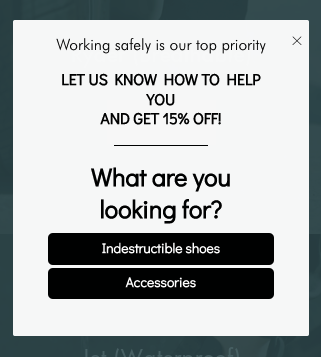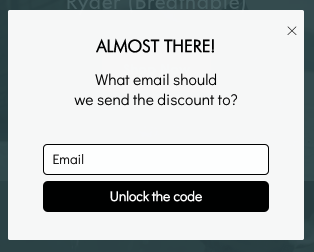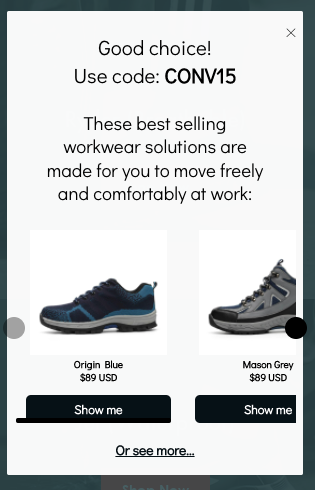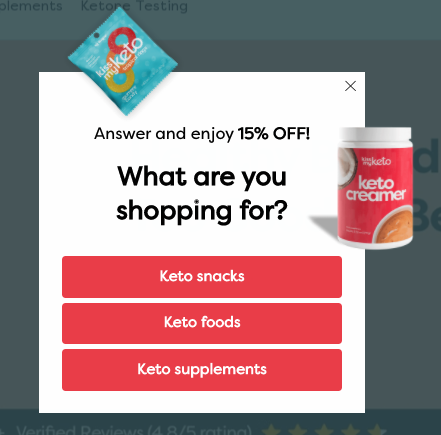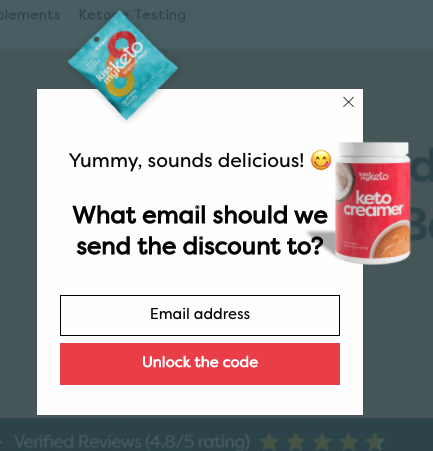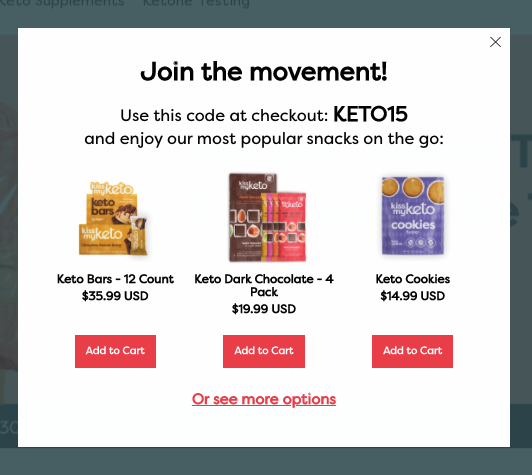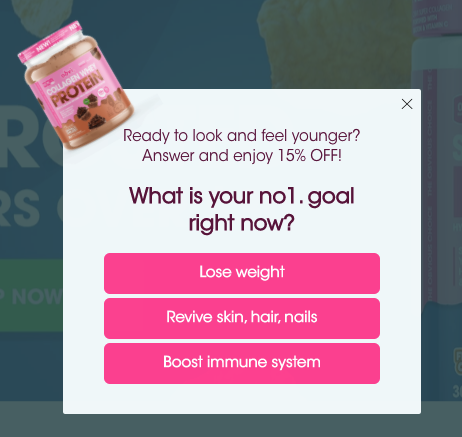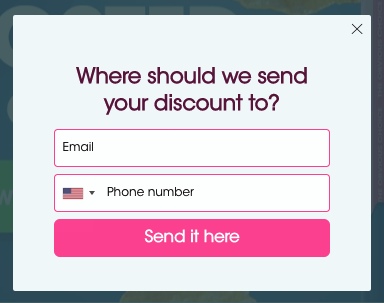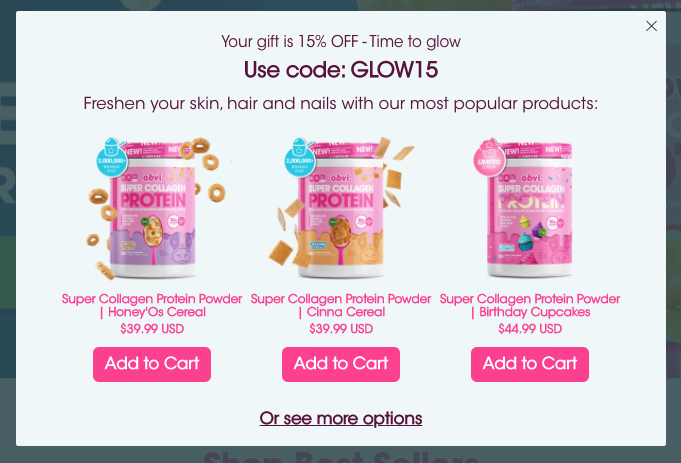Traditional remarketing has suffered a huge drop in its effectiveness recently, it is not the same good-old method anymore. Some even say it is dead. This is a serious problem amongst Shopify or any other ecommerce stores, as remarketing has played a huge role in most companies’ strategy for years.
How does traditional ecommerce remarketing work?
- Showing Facebook product ads, sending traffic to the product or category pages
- Result: Most of the visitors are not converting, leaving the website without finishing the purchase
- Action: Showing remarketing ads based on their previous browsing history, trying to convince them to buy
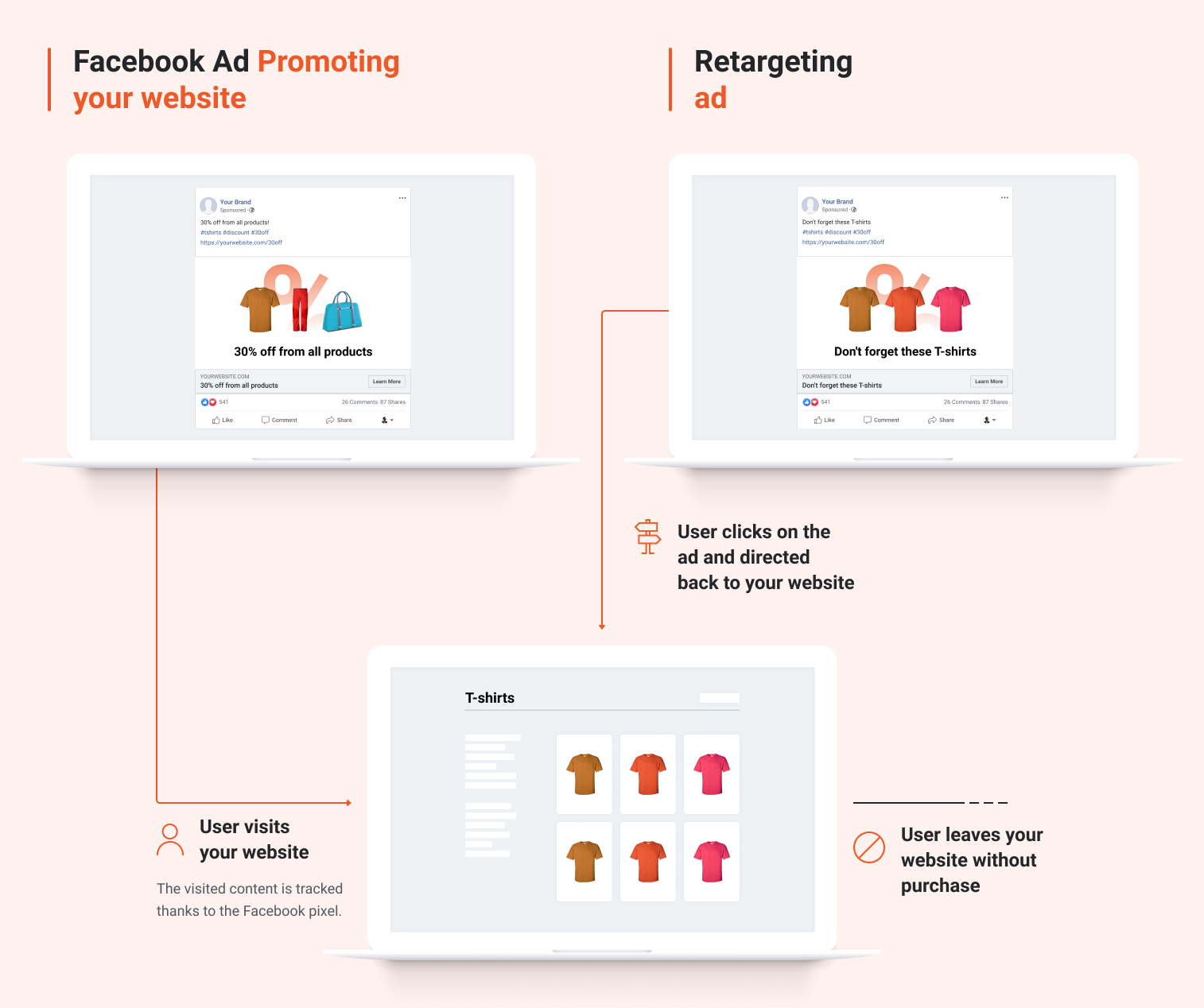
What is the problem with traditional remarketing?
With the release of iOS 14 Apple requires all iPhone and iPad users to give permission to Facebook (and other apps) to track what are they doing on your website.
Most of your store visitors (about 98%) will leave without making a purchase. If Facebook doesn’t have permission to track them, you will not be able to retarget them with ads. Basically, that means you just lost a huge number of visitors and you can not get in touch with them again.
Is this a real problem?
Look at it from the customer’s point of view. Would you want to be tracked?
The answer is probably no, and as you can imagine, most people feel the same. Research says around 94% of US users are against being tracked by companies.

Image: flurry.com
So this means you can’t track and promote your offer (with remarketing ads) to almost all Apple users.
How many of your total users are affected?
You can check it in your website analytics, but according to industry research, roughly 50% of US visitors are using iPhone/iPad.
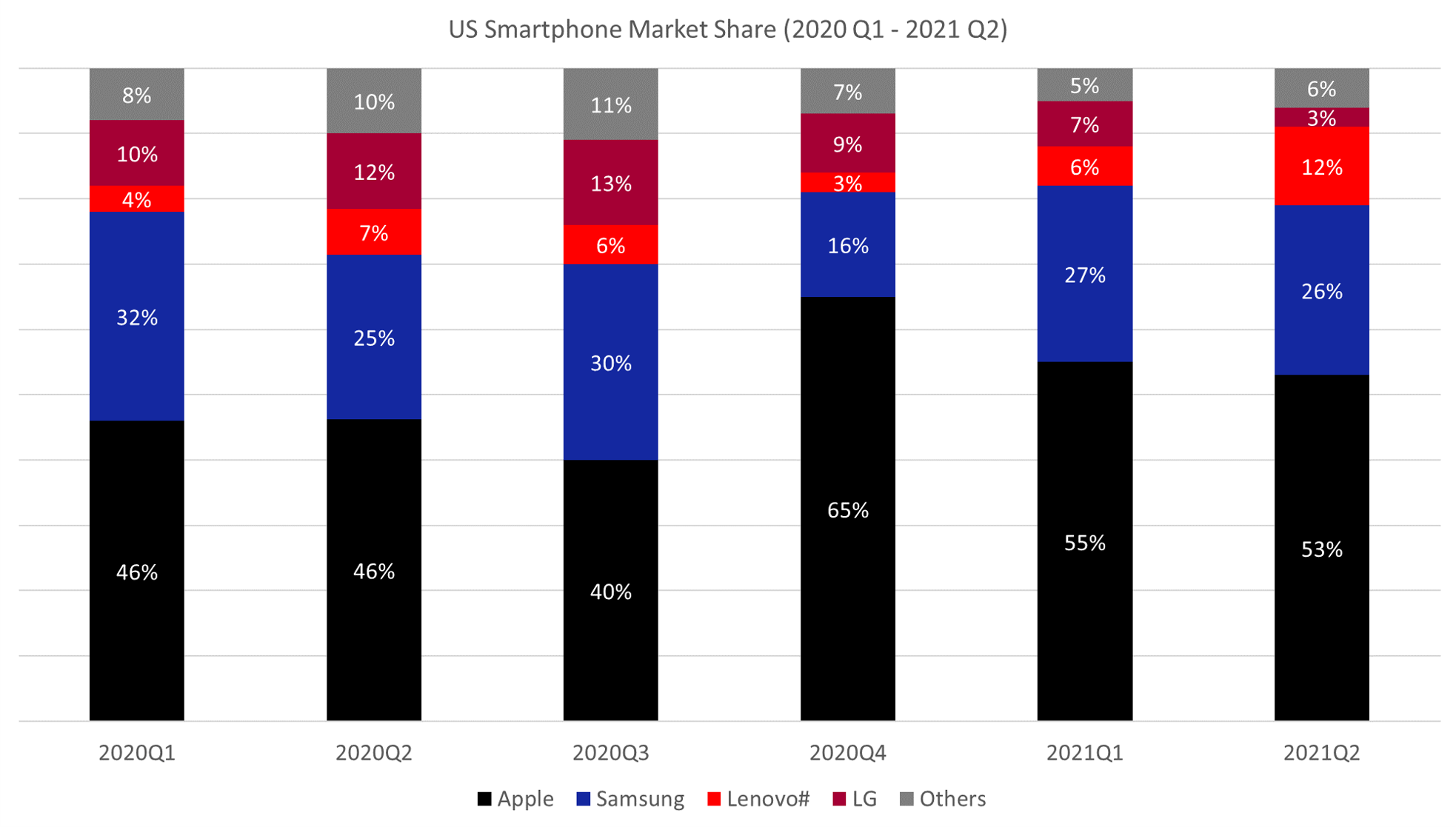
Image: counterpointresearch.com
So all in all, from a personal perspective, it is totally normal and obvious to protect your data.
On the other hand, if you are a Shopify merchant, it can be a disaster, because you can’t reach around 50% of your visitors with remarketing ads. Your ROAS (return on ad spent) will increase week by week, as the Cost Per Visitor too.
Unless you get the most of your visitors by getting their contact information.
Modern remarketing 1.0 – collecting contact information
When you have visitors’ contact information, like email or phone number, you can reach out to them anytime you want. You don’t have to rely on other applications (like Facebook) for data, and you don’t have to pay those companies to show your ads.
Plus, by combining the data in your CRM or email marketing tool, you can have a better and more personalized process – such as segmented autoresponders, segmented product recommendations and limited deals.
Don’t have an email list? Then, it’s a good time to start building it:
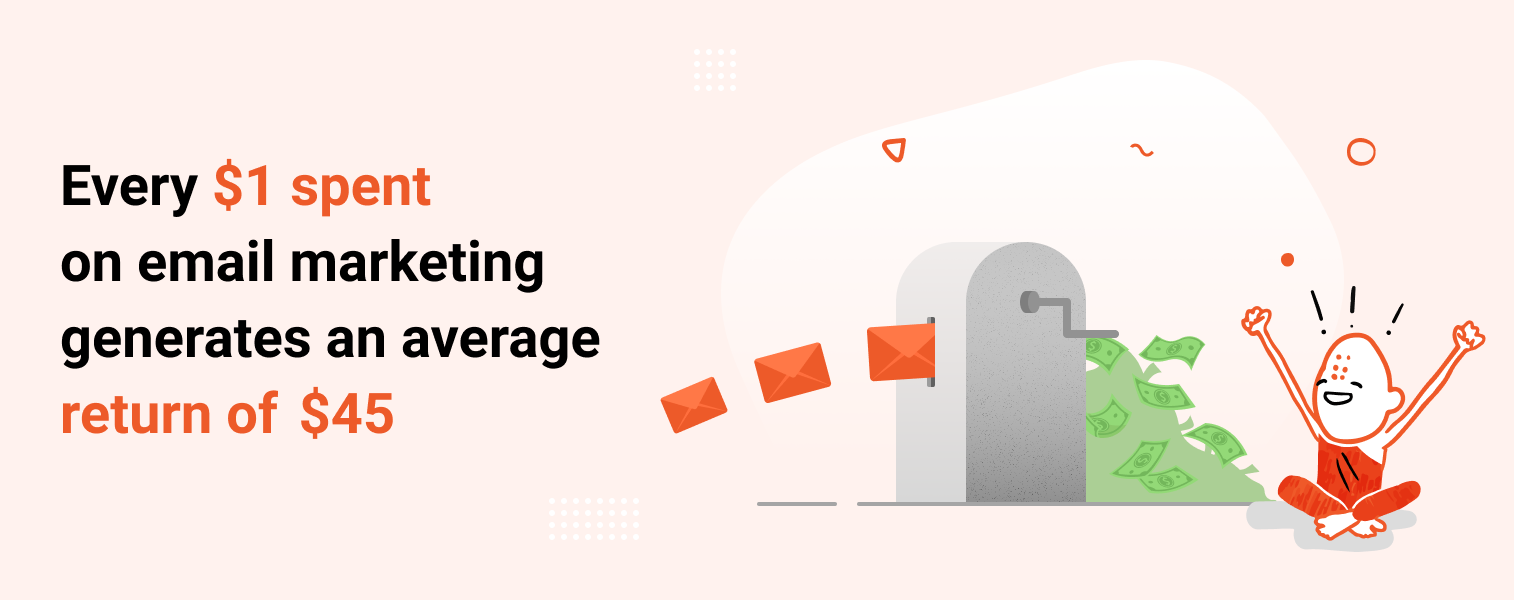
According to Litmus (2020), every $1 spent on email marketing generates an average return of $45.
Collecting email addresses with traditional popups
There are a number of ways to collect contact information and build your list. One very common example amongst Shopify merchants is to welcome visitors with a popup – where they try to capture their email address by offering a discount. Then, later on, they can send visitors newsletters and offers.
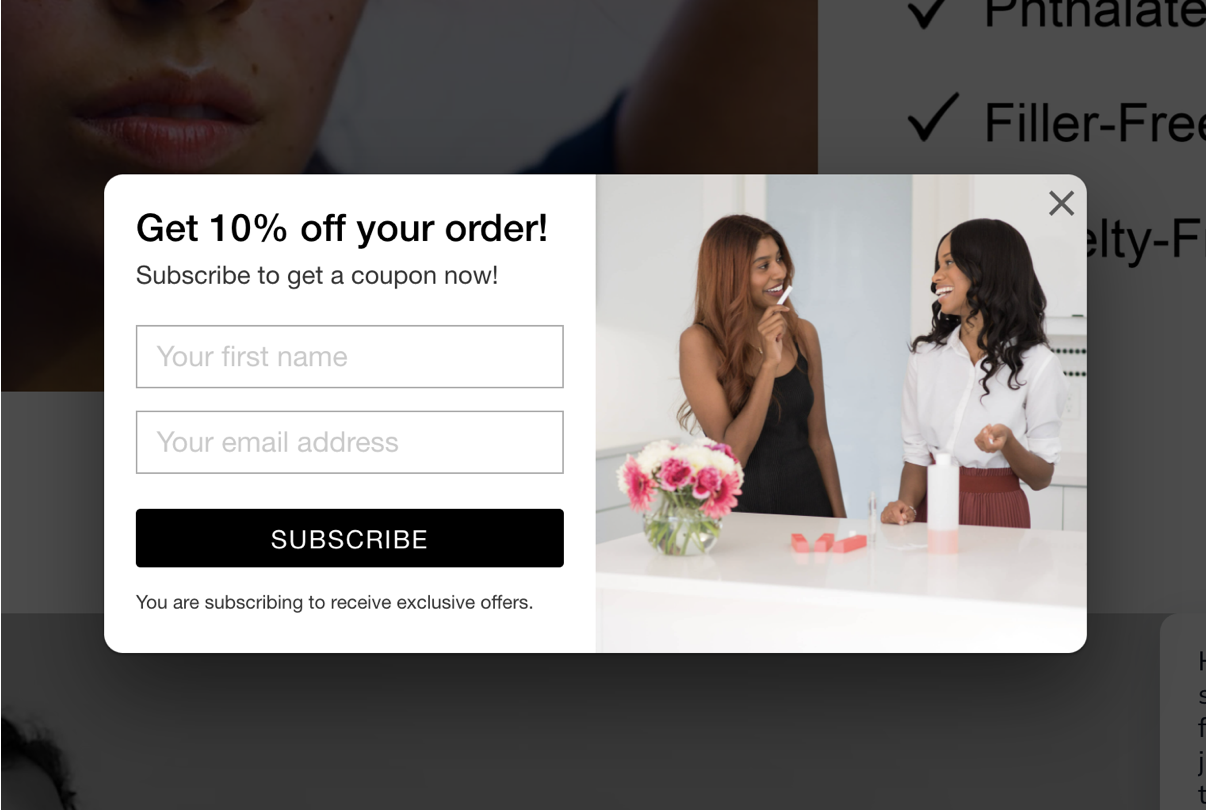
These basic subscriber popups and general newsletters are working really well, but their efficiency can be doubled, tripled, or even quadrupled with some minor tweaks.
So, let’s look at an alternative way to approach this.
Watch our webinar recording or continue reading.
Modern remarketing 2.0: CONVERSATIONAL POPUPS
The Conversational Popup is a brand new and interactive way to collect contact information. You can ask your customers about their needs and preferences, and make personalized product recommendation that can be added to cart.
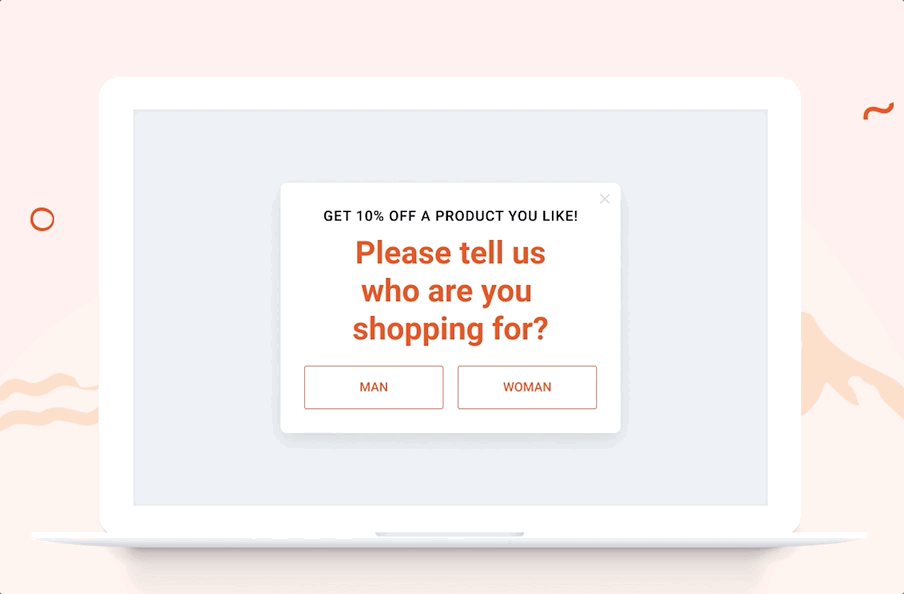
How Conversational Popups work?
Compared to traditional popups, Conversational Popups follow a more natural flow of communication. They’re like a short conversation between a customer and a shop assistant:
- start with a relationship-building question
- then capture contact and valuable user data based on interest
- show personalized recommendations to increase sales
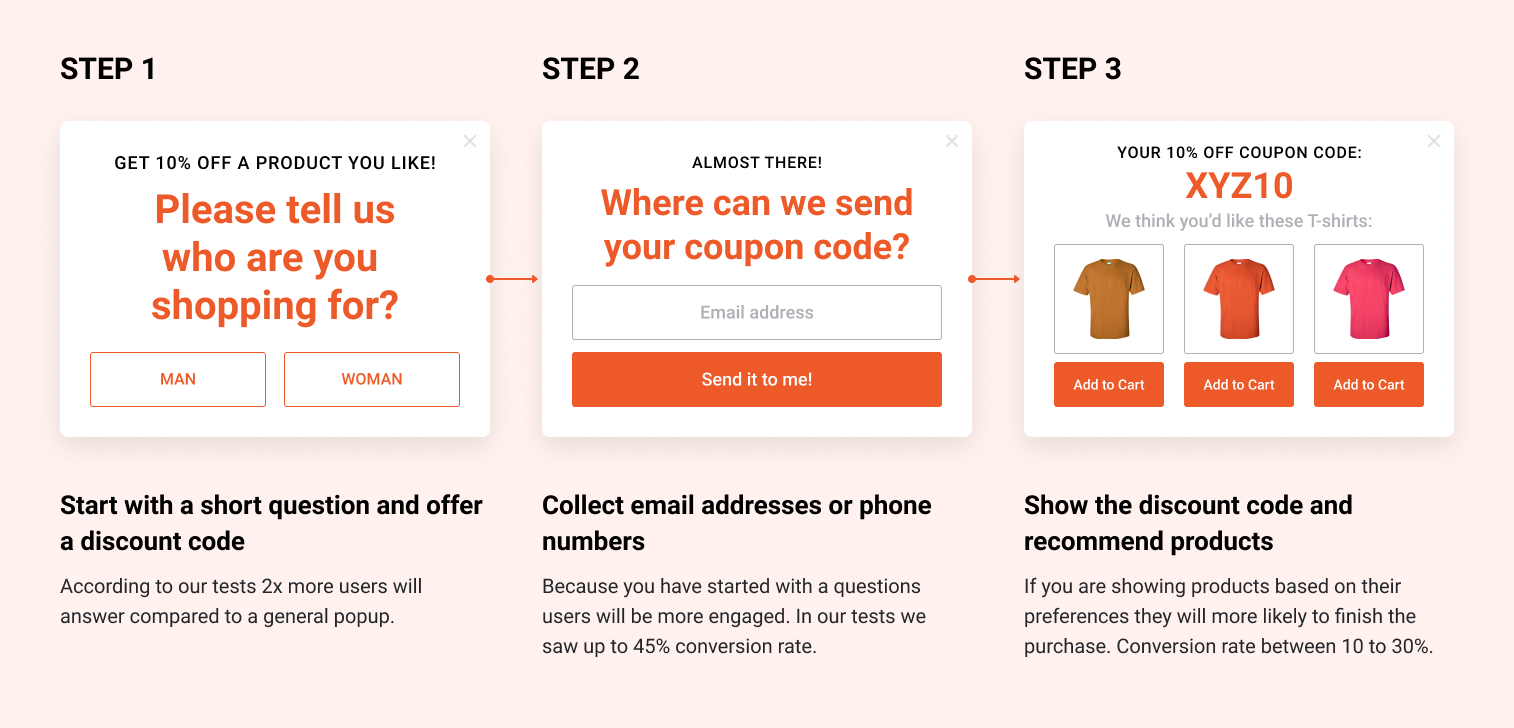

“You can’t just walk over to someone and offer them to sell your product. You need to start a discussion first to understand what they are looking for and then offer your product. Conversational popups works the same way by helping you to start the discussion with your website visitors.”
Why should you use Conversational Popups?
According to our tests, Conversational Popups are much more effective than general popups at capturing contact information. There are 2 key factors here:
- starting a conversation with a question – this way you can boost their commitment
- personalized product recommendations – by showing the right products based on their answers you can increase their willingness to complete a purchase
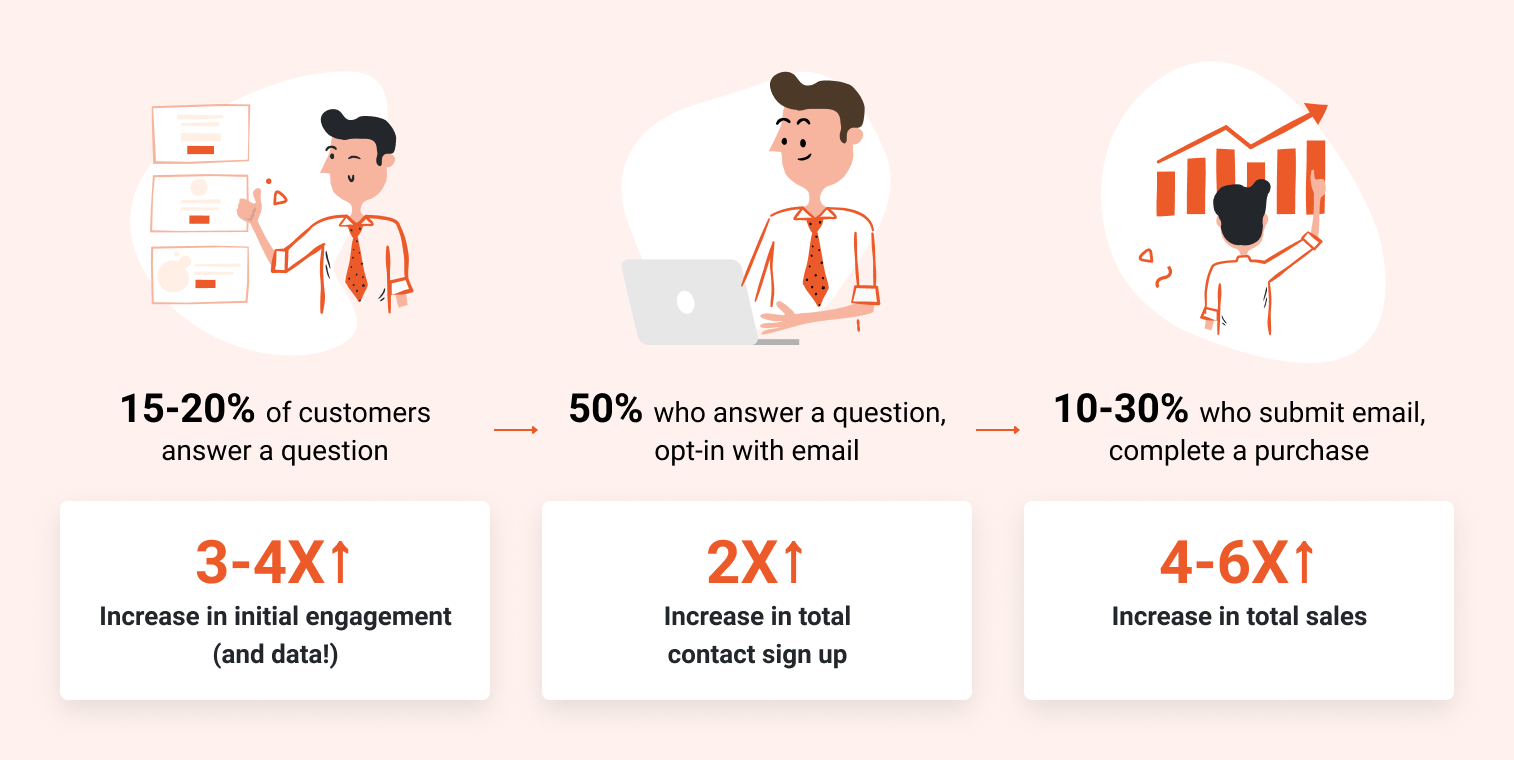
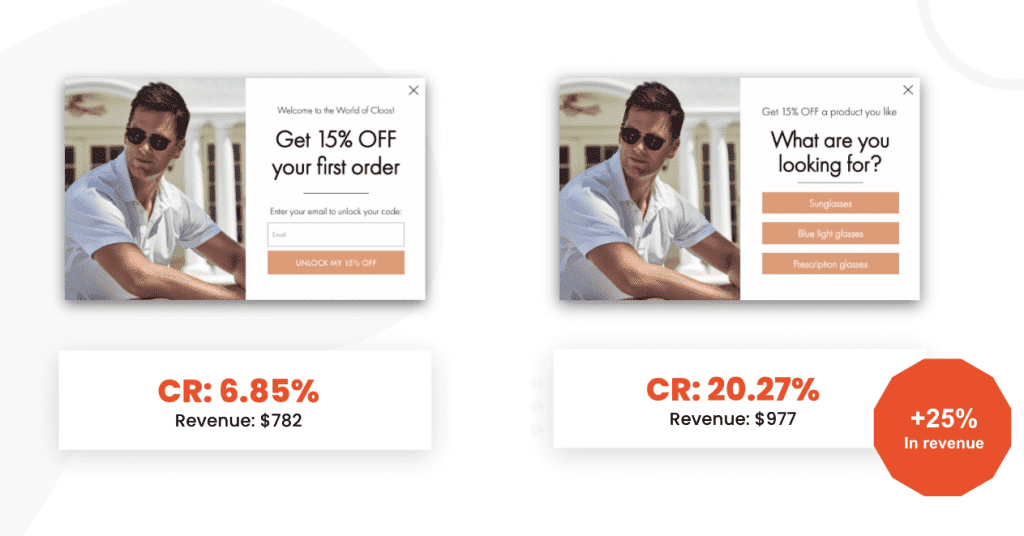
Great Conversational Popup examples:
You don’t need to make it complicated. You can ask a simple segmenting question, based on their interest, in connection with the product categories that you sell.
This question works just as well for food supplements…
…or for a pair of glasses.
Alternatively, you can ask your users about their goals or problems. If the users are not familiar with your products and solutions this can be a very effective way to help them to choose.
How to set up Conversational Popups (with free templates)
Step 1 – Start the conversation with a question
This way you start building the relationship and increase user engagement. You have a high chance to get an answer, and that can be used to show more personalized recommendations.
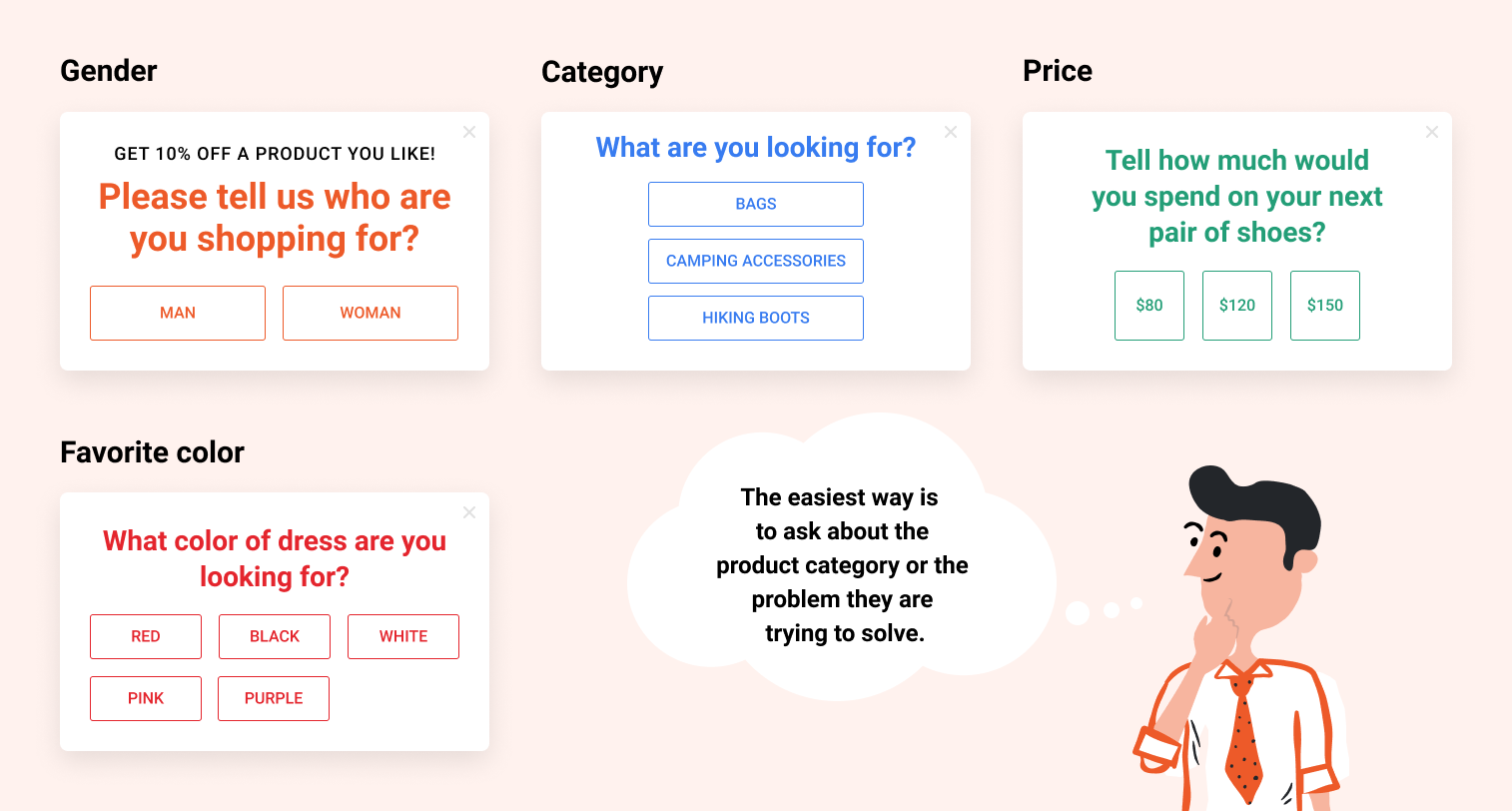
Step 2 – Select a template
Once you have the question in your mind it’s time to build your first conversational popup.
- Pick a free template from our Template Library and match it to your brand’s colors
- Change the wording on each page to match your preferences
- Add some product recommendations on the third page
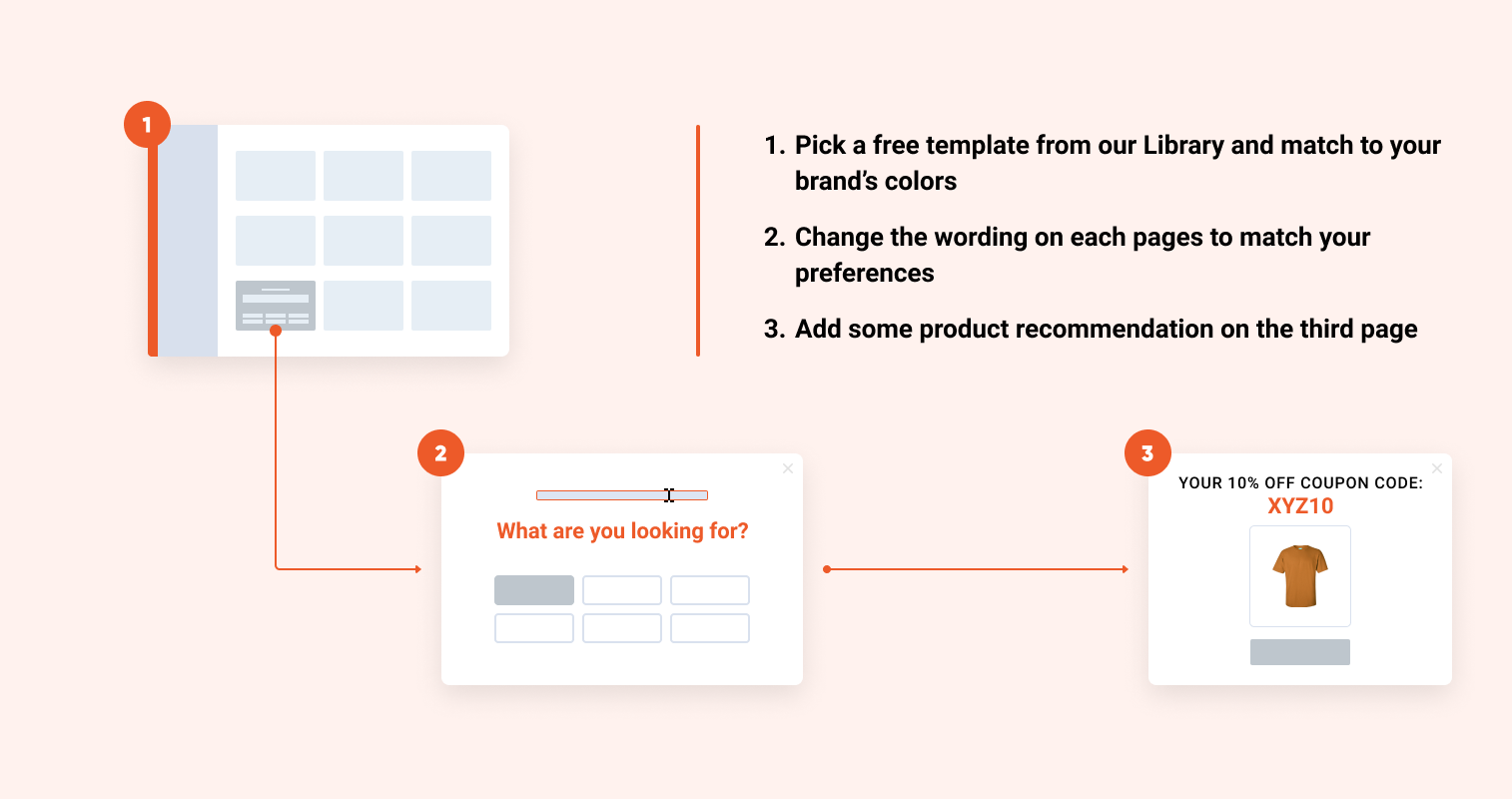
Step 3 – Show personalized recommendations
To provide personal recommendations based on the answers, you need duplications of the second and the third pages of the popup. The number of duplication depends on the number of answers you provide on the first page of the popup.
For example: if you are offering 3 questions, then create 3 copies of the second and the third page.
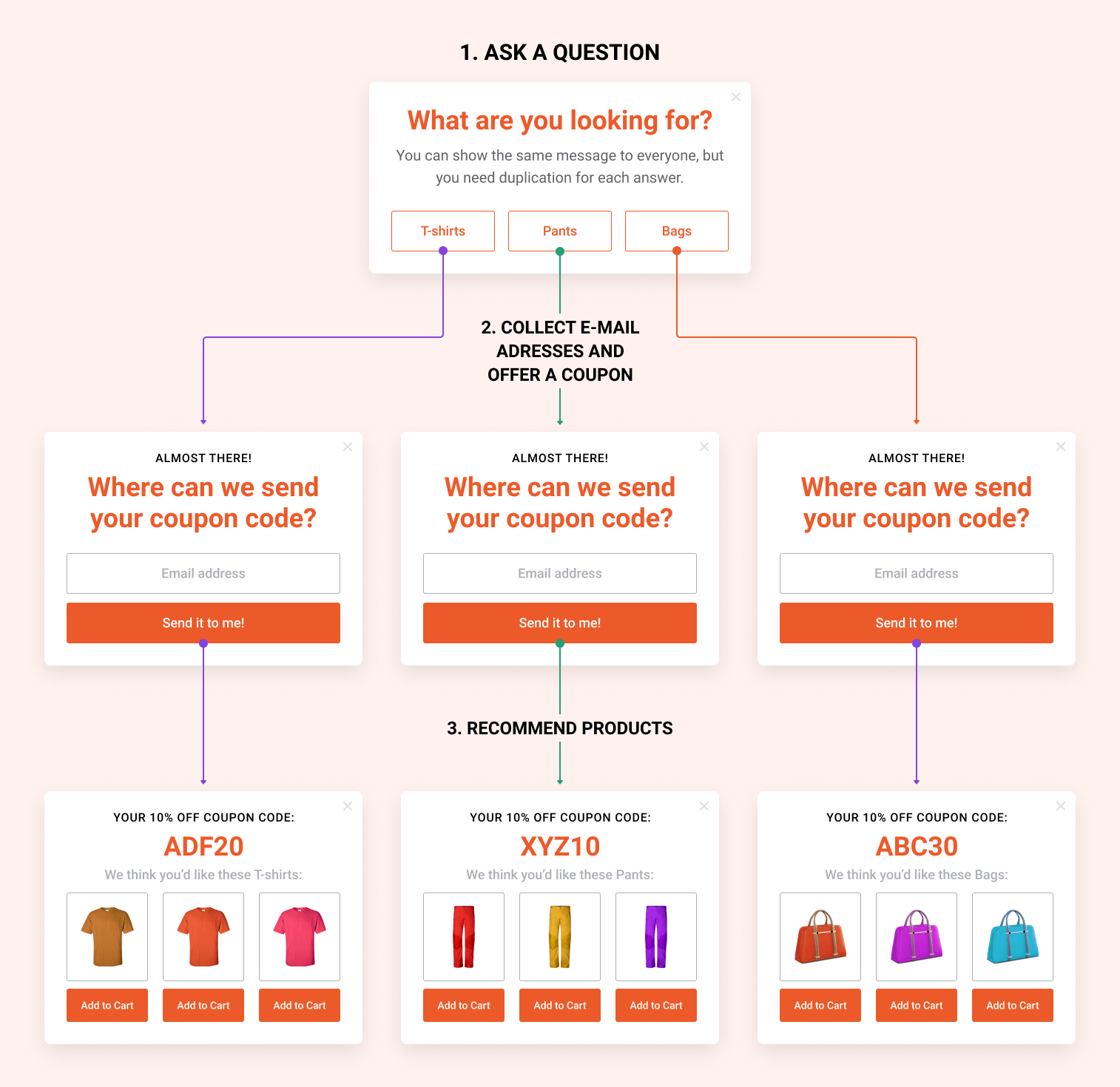
On the third page, you can select manually what products do you want to offer to users based on the different answers they provide on the first page. You need a version (a new page) for each different answer. The personalized recommendations will resonate with your users’ preferences and they are more likely to use the coupon and finish the purchase.
Step by Step Guide: How to create it in the OptiMonk editor
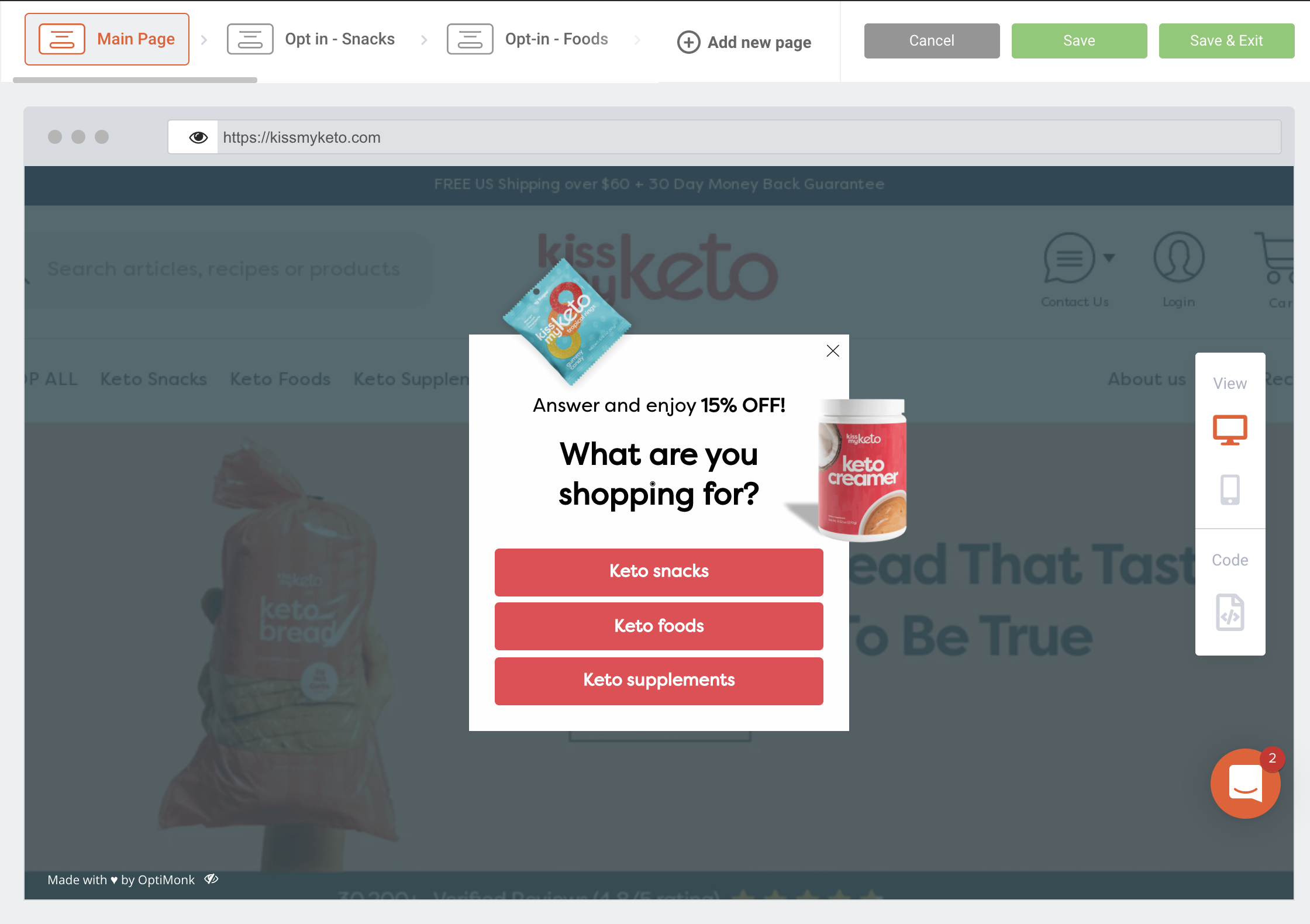
Main Page: Add your segmenting question. For example: What are you shopping for?
Tip: Spice it up with an offer – such as: Answer and enjoy 15% OFF
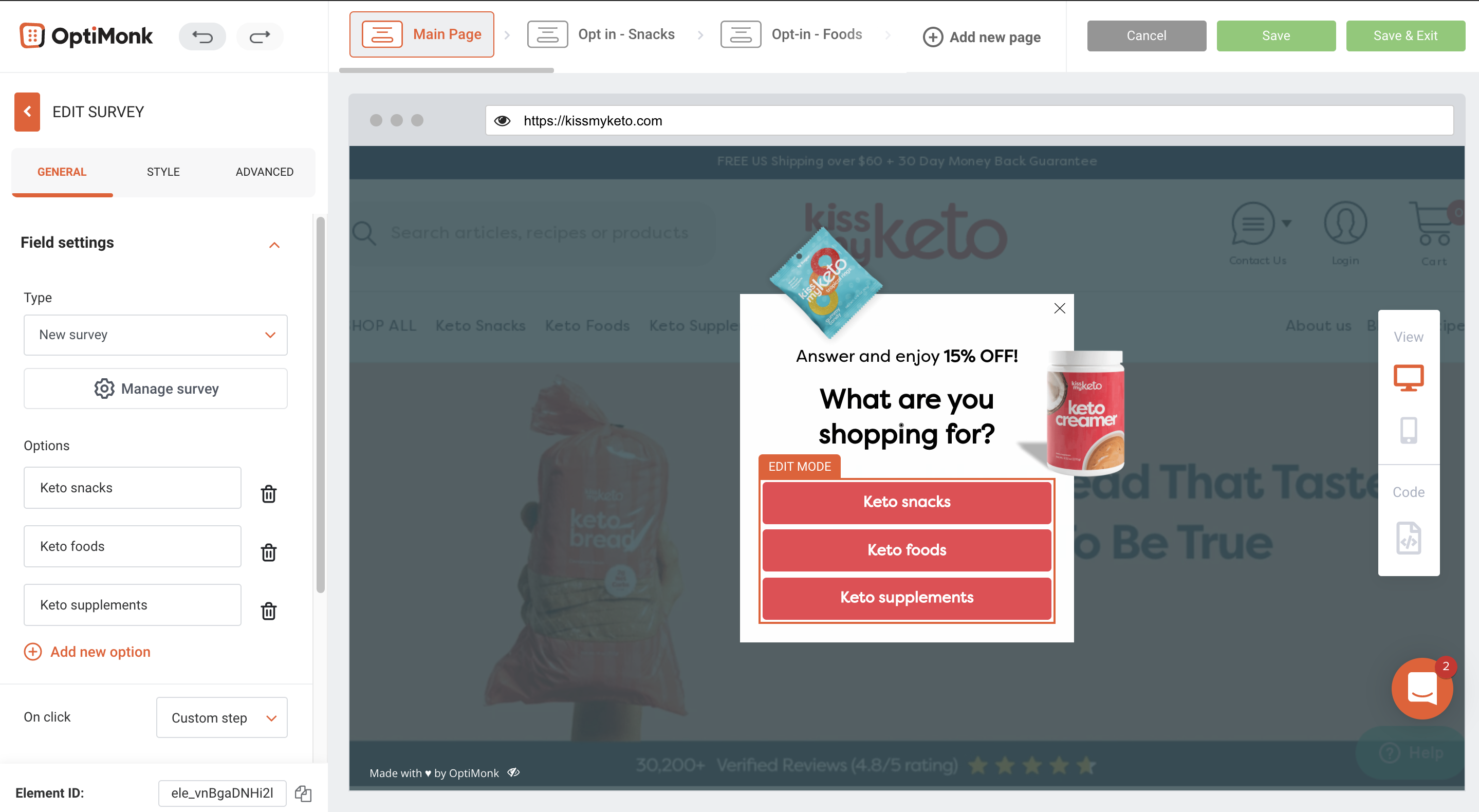
Use the survey element then provide the possible answers – Keto Snacks, Keto foods, Keto supplements
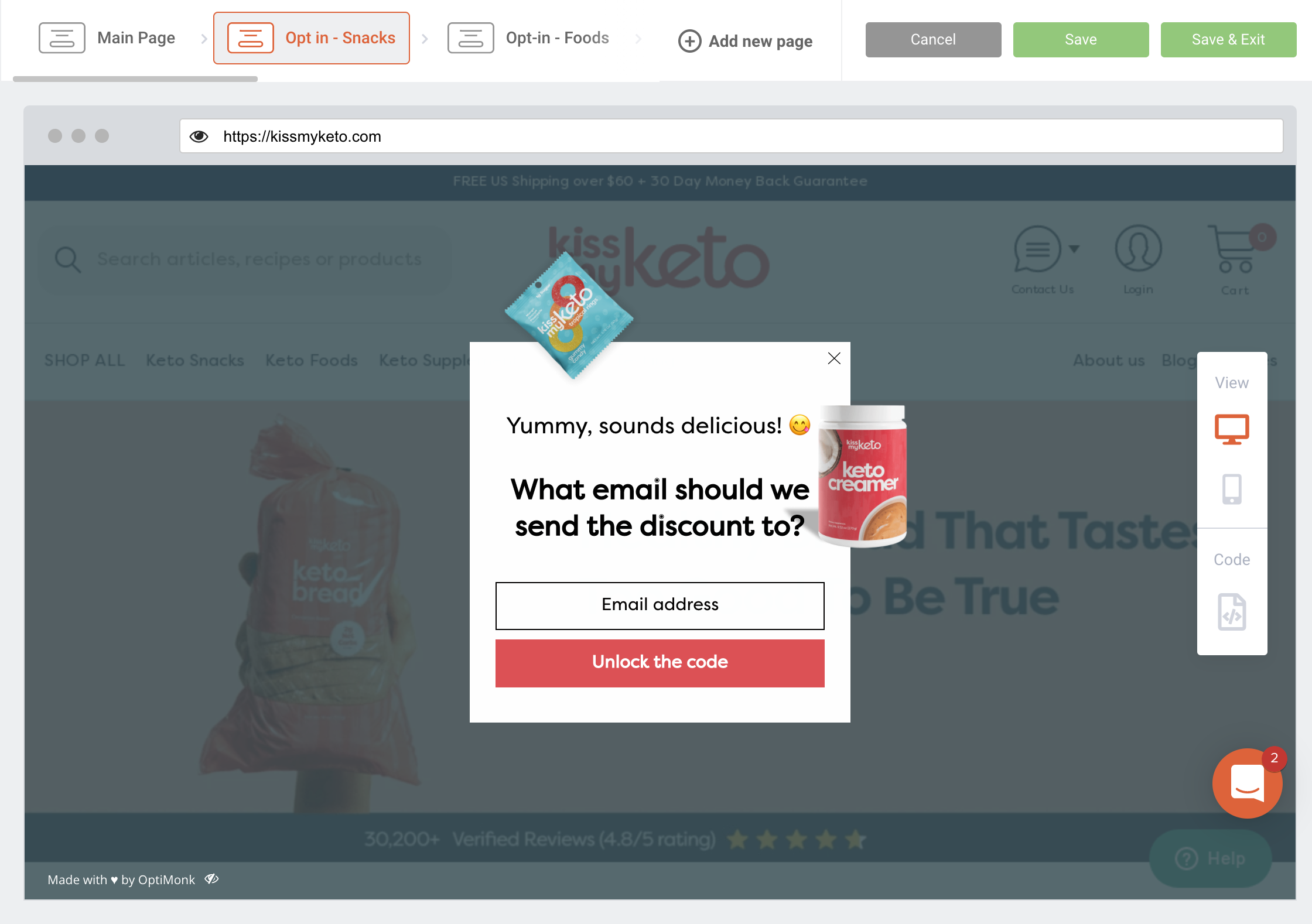
Collect the email address in exchange for the discount code. Duplicate this page as necessary. The number of duplication depends on the number of answers you provide on the first page of the popup.
Recommendations: On the third page, select the recommended products based on the visitor’s answers.
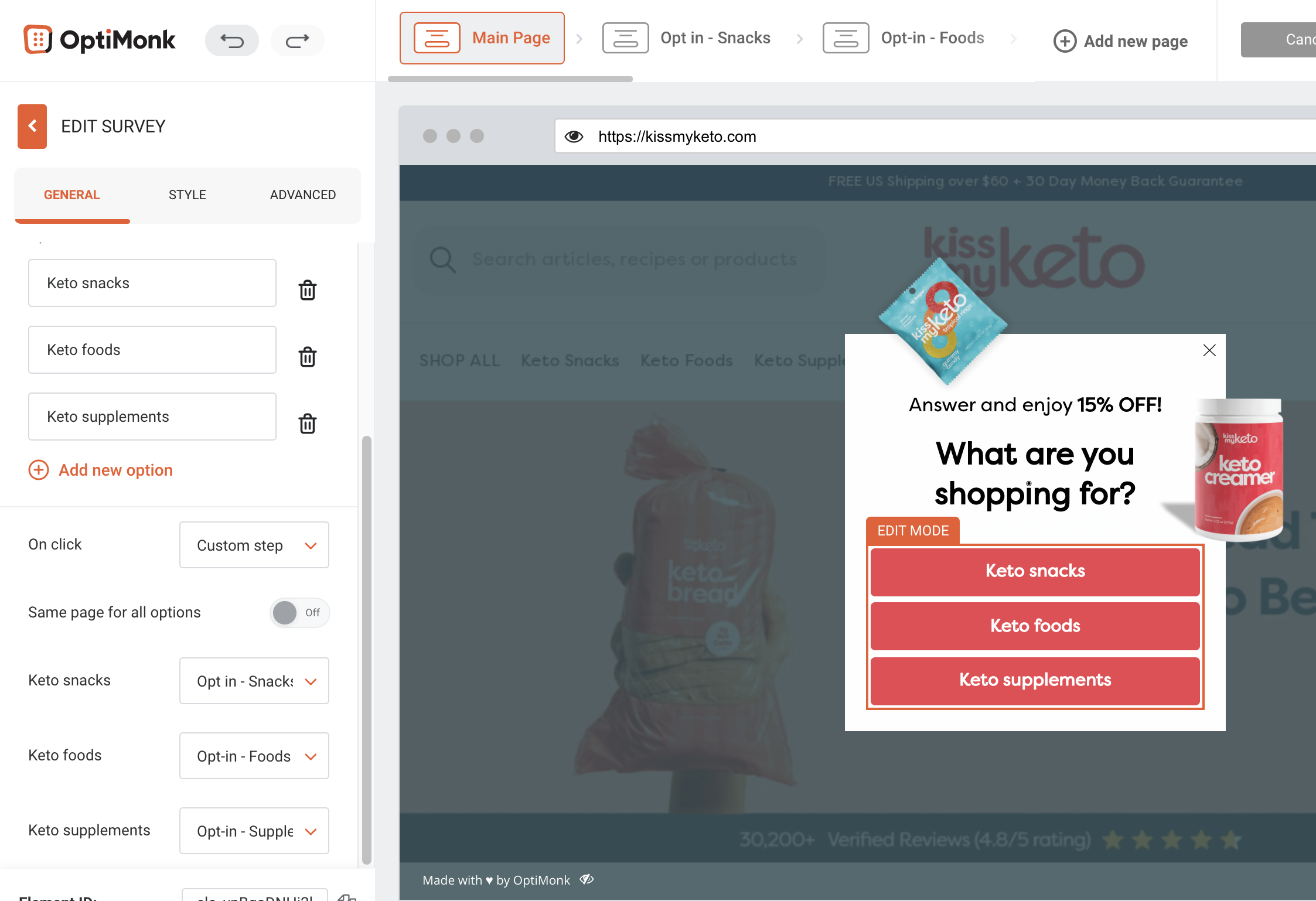
Connect the steps. It is important in order to recommend relevant products to the visitors based on their answers.
On click – set a custom step for the “email opt-in step” (this is where you collect the email addresses. Remember you need one page for each answer.)
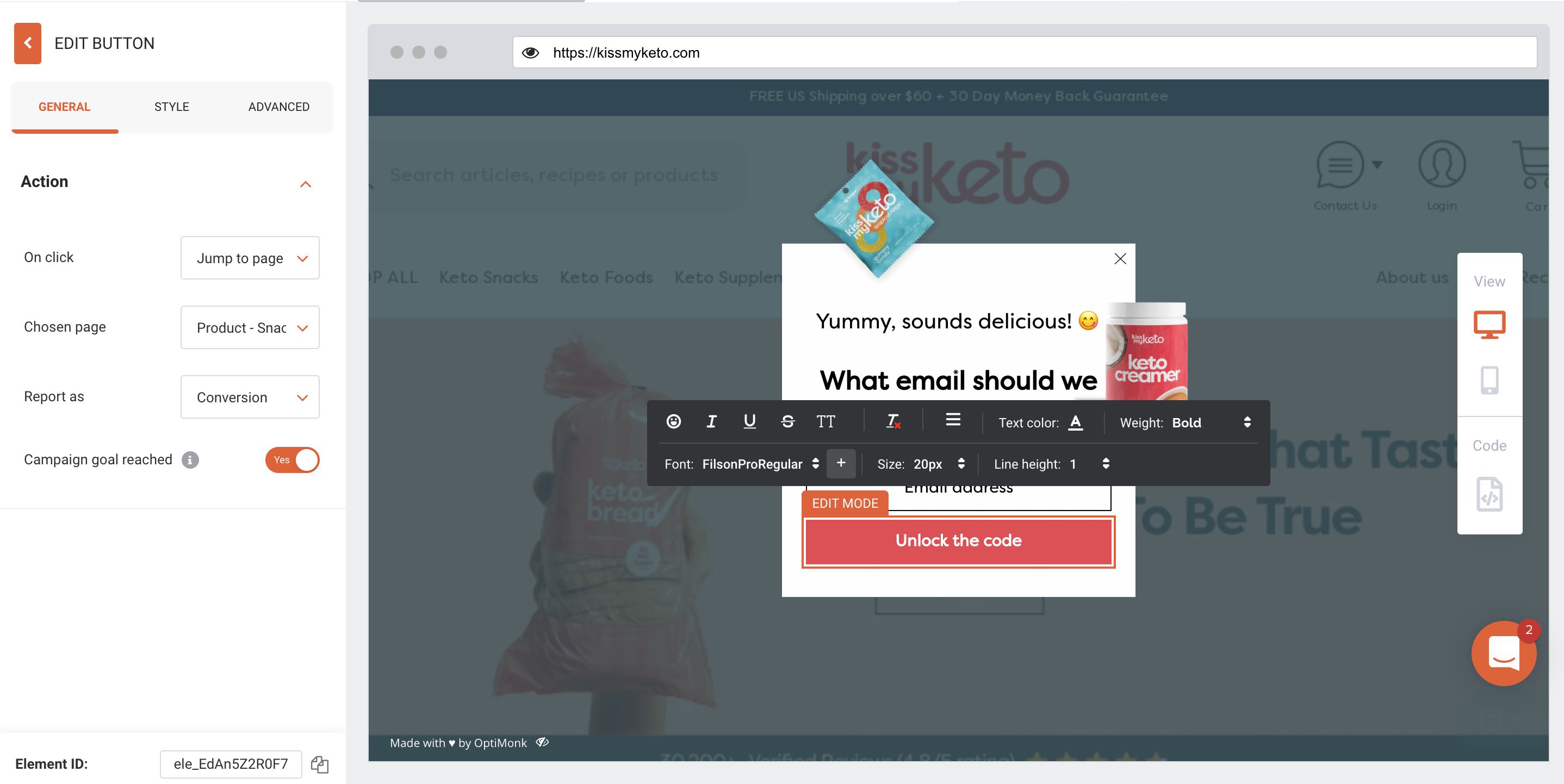
Set the action for the recommendation pages:
- On click – set it to jump to a page (If someone clicks the button “Unlock the code” this is what will happen.)
- Chosen Page – set the right recommendation according to the answer.
Bonus Tips: Use this data to personalize your email, SMS, and ads
Most users don’t like unrelated, general promotional messages. Therefore, these messages do not usually work. And even if they do, they can annoy your visitors.
This is where you will see another big benefit of using conversational popups.
By using the survey element, you can save this valuable information for the next time you communicate with them.
Personalization tips:
- You can create segments based on their answers and follow up with a personalized product recommendation email. Or build a personalized autoresponder series based on their answers.
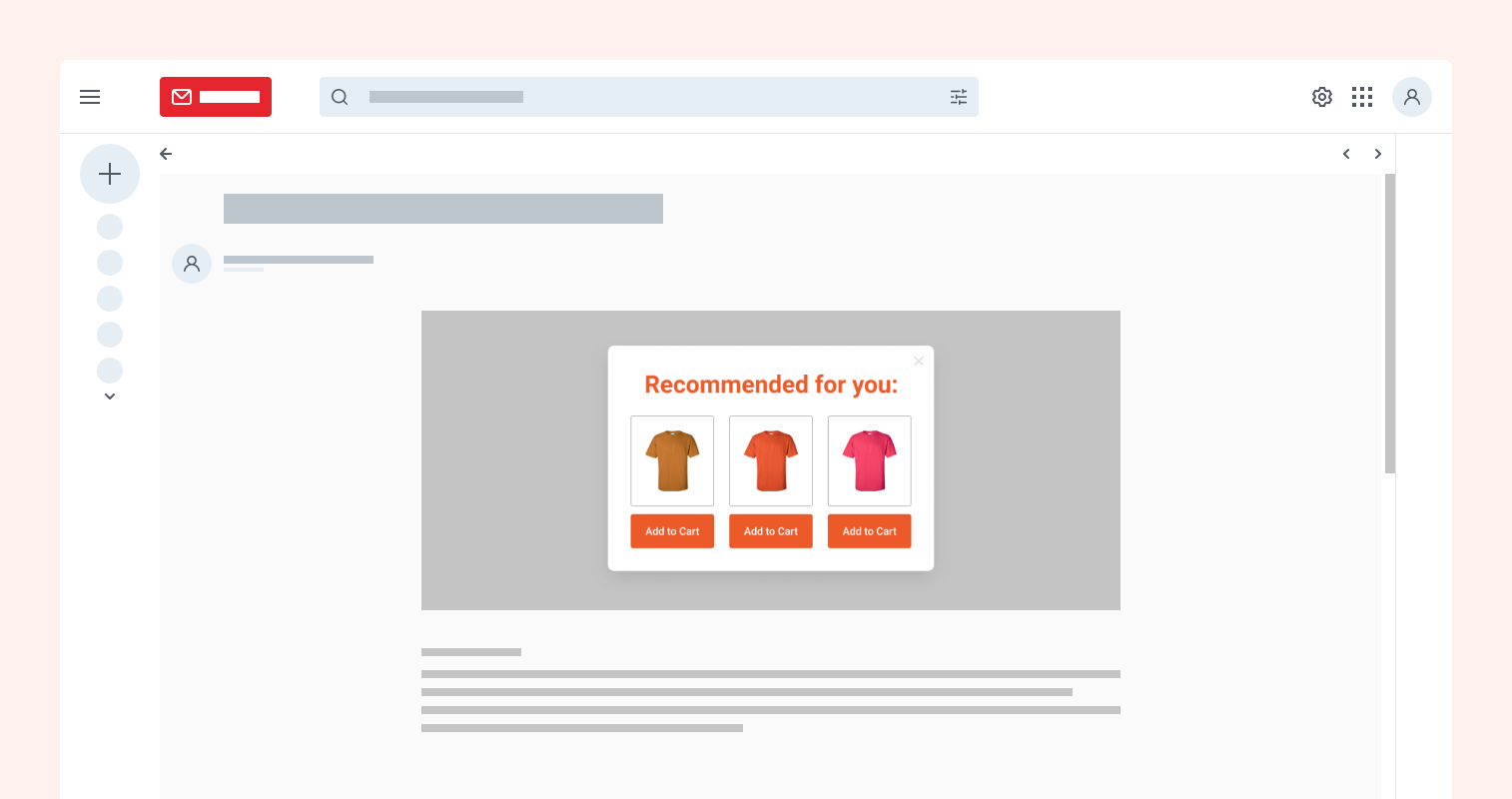
- If you are building an SMS list you can ask for the phone number instead of their email address and retarget the users with an SMS campaign. Just simply export the list and create the segments according to their answer.
- Use this information to target cold audiences more effectively. Based on the email addresses and answers you’ve collected you can create custom audiences in Facebook Ads or Google Ads. You may lose the option to target these users directly on Facebook (not via Google Ads), but you can create lookalike audiences using these lists.
Now it’s your turn. Collect and own your data with these brand new Conversational Popups, and boost your opt-ins and revenue.

“Conversational popups used to be a nice-to-have, now with the IOS14.5 at our doorstep, I strongly believe they’re a must-have”
The post Why Your Remarketing Strategy Is Not Working Anymore And How You Can Fix It appeared first on OptiMonk - Ultimate Exit Intent Popup Builder.
